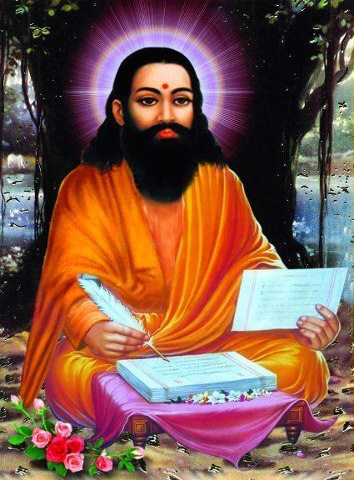Significance of Guru Ravidas Jayanti 2025:
Guru Ravidas Jayanti is on 12th February, 2025, is a birth anniversary for the famous and revered saint, poet, as well as the social reformer of Bhakti Movement who was born in the 15th century. He is of Varanasi (Banaras) fame where his spiritful teachings spread not only in their equality and humanness but appealed to millions as well which promulgated above all casteism and societal standing the universal message of brotherhood and worship before God.
People from Punjab, Uttar Pradesh, and the Bharat Dalit fraternity also hold Sant Ravidas in high esteem due to his progressive view on social justice and spirituality.

Life and Teachings of Sant Guru Ravidas:
Equality and Social Harmony:
Sant Guru Ravidas opposed the caste system and taught equality among all, stating that all of them are equal in God’s eyes.
Devotion and Spirituality Path:
Sant Guru Ravidas considered that direct relation with God would come from worship rather than rites or possessions.
Message of Humanity:
His teachings encouraged people to practice humility, compassion, and selflessness, guiding them toward a righteous and spiritual life.
Simplicity and Honesty:
Sant Guru Ravidas taught that living an honest, simple life and serving humanity is the highest form of worship.
Ravidas Jayanti 2025:Rituals and Celebrations:
Processions and Kirtans:
Devotees arrange processions (Nagar Kirtans) where Guru Ravidas’s hymns and teachings are recited. These processions are mostly accompanied by devotional singing and traditional instruments. -Ravidas Jayanti
Special Prayers in Temples:
Guru Ravidas temples, particularly the renowned Shri Guru Ravidas Janmasthan Temple in Varanasi, observe thousands of devotees participating in special prayers and ceremonies.
Reading and Singing Hymns:
Devotees chant and sing bhajans and hymns by Guru Ravidas, preserved in the sacred scripture of the Sikhs called Guru Granth Sahib.
Langars or Community Meals:
Community kitchen or langar is arranged in which people of all walks of life gather and share meals. It symbolizes equality and oneness.
How Sant Guru Ravidas’ teachings remain relevant in the fight against discrimination and inequality?

The teachings of Sant Guru Ravidas are highly relevant in the struggle against discrimination and inequality because he preached a society based on equality, compassion, and spiritual unity, rejecting the rigid caste system and social hierarchies. His vision of Begampura, a city without sorrow or discrimination, inspires modern social justice movements promoting inclusivity and human dignity. His emphasis on inner purity over outer rituals challenges all biases of caste, religion, and social status, leading to a more harmonious and balanced society.
2025:Quotes inspired by Guru Ravidas Ji’s life and teachings:
1.“Man chaga to kathauti mein Ganga.” (If your heart is pure, even a small vessel of water is as sacred as the Ganges.) -Ravidas jayanti
2.“Jati-pati puchhe nahi koi, hari ko bhaje so hari ka hoi.” (God does not ask about caste or status; those who worship Him belong to Him.)
3.“Aisa chahu raj main, jahan mile saban ko anna.” (I desire a kingdom where no one goes hungry, and everyone has enough to eat.)
4.“Ravidas jan jo ek baat kahai, ram bhajan bin kachhu nahi chai.” (Ravidas says one thing—there is nothing greater than devotion to God.)
5.“Kahe Ravidas suno bhai sadho, hari bina na koi.” (Ravidas says—O seekers, there is no one greater than Hari.)
6.“Bura jo dekhan main chala, bura na miliya koi. Jo mann khoja aapna, mujhse bura na koi.” (I searched for evil in the world but found none; when I looked within, I realised my flaws.)
7.“Naam bina jag andh hai.” (Without God’s name, the world remains blind.)
Key Hymns and Literature:
Guru Ravidas’s verses are included in the Guru Granth Sahib, and the most famous verse of his describes devotion, equality, and spiritualism. He has one famous hymn in which he states:
“Begumpura shehar ka naam, dukh andohu nahin tha thaam.”
This hymn envisioned a utopian city called Begumpura that was sorrow-free, discriminating, and had no unequal entities. -Ravidas jayanti



